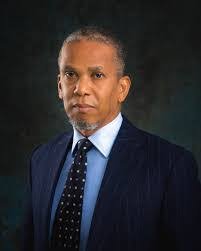Following the invasion and destruction of properties in Okuama, the Senator Ede Dafinone, representing Delta Central Senatorial District, has said that, though the camp for displaced persons was closed at the end of last year, noting that, the rebuilding efforts of properties destroyed in the community have been slow and inadequate.
Senator Dafinone stated in a chat with Journalist in Ughelli stressing that the Okuama crisis remains unresolved, despite claims suggesting otherwise.
He noted that the situation in the community demands urgent government intervention and sustained attention, positing that the community is still grappling with severe hardship. Residents reportedly lack access to essential amenities, including clean water, electricity, and healthcare services.
The lawmaker urged both federal and state governments to intensify efforts to restore basic infrastructure and enable displaced families to return to normal life.
Read also:
- Okuama community seeks Tinubu’s intervention over plight of detained leaders
- One Year After: Senator Dafinone demands justice for Okuama massacre victims
- Okuama: Delta shuts Ewu IDP camp as displaced persons return to ancestral homes
Senator Dafinone also raised concerns over the continued detention of six individuals arrested in August 2024 in connection with the crisis.
According to him, one of the detainees has died in custody. He confirmed that through sustained advocacy, some detainees including the traditional ruler of Ewu Kingdom have been released.
He disclosed that he has engaged the Nigerian Army and the Attorney General of the Federation to secure the release of those still being held, insisting that prolonged detention without trial amounts to a violation of fundamental rights.
“Detention without trial is punishment in itself. Those found innocent must be freed and compensated for their time in custody,” Dafinone asserted.
The lawmaker reiterated his commitment to ensuring justice for the Okuama people and urged government authorities to prioritize the rehabilitation of the community.
He maintained that true reconciliation and peace can only be achieved through fairness, justice, and the restoration of livelihoods.






